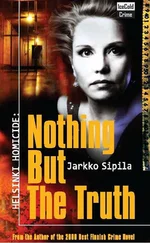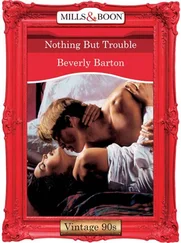Frederic Isham - Nothing But the Truth
Здесь есть возможность читать онлайн «Frederic Isham - Nothing But the Truth» — ознакомительный отрывок электронной книги совершенно бесплатно, а после прочтения отрывка купить полную версию. В некоторых случаях можно слушать аудио, скачать через торрент в формате fb2 и присутствует краткое содержание. ISBN: , Жанр: foreign_prose, foreign_humor, на английском языке. Описание произведения, (предисловие) а так же отзывы посетителей доступны на портале библиотеки ЛибКат.
- Название:Nothing But the Truth
- Автор:
- Жанр:
- Год:неизвестен
- ISBN:http://www.gutenberg.org/ebooks/43916
- Рейтинг книги:5 / 5. Голосов: 1
-
Избранное:Добавить в избранное
- Отзывы:
-
Ваша оценка:
- 100
- 1
- 2
- 3
- 4
- 5
Nothing But the Truth: краткое содержание, описание и аннотация
Предлагаем к чтению аннотацию, описание, краткое содержание или предисловие (зависит от того, что написал сам автор книги «Nothing But the Truth»). Если вы не нашли необходимую информацию о книге — напишите в комментариях, мы постараемся отыскать её.
Nothing But the Truth — читать онлайн ознакомительный отрывок
Ниже представлен текст книги, разбитый по страницам. Система сохранения места последней прочитанной страницы, позволяет с удобством читать онлайн бесплатно книгу «Nothing But the Truth», без необходимости каждый раз заново искать на чём Вы остановились. Поставьте закладку, и сможете в любой момент перейти на страницу, на которой закончили чтение.
Интервал:
Закладка:
While expecting, of course, the negative direct, she was studying Bob and gleaning what she could, surreptitiously, or by inference. He had an eloquent face which might tell her something his lips refused to reveal. His answer almost took her breath away.
“Ye-es.”
He was sorry, but he had to say it. No way out of it! Mrs. Dan’s jaw fell. What she might have said can only be conjectured, for at this moment, luckily for Bob, there came an interruption.
“Tête-à-têting, instead of teeing!” broke in a jocular voice. The speaker wore ecclesiastical garments; his imposing calves were encased in episcopal gaiters. Mrs. Ralston always liked to dignify her house-parties with a religious touch, and this particular bishop was very popular with her. Bob inwardly blessed the good man for his opportune appearance. He was a ponderous wag.
“Forgive interruption,” he went on, just as if Mrs. Dan who was non-amatory had been engaged in a furious flirtation. “I’ll be hurrying on.”
“Do,” said Mrs. Dan, matching his tone, and concealing any inward exasperation that she might have felt.
“It’s I who will be hurrying on,” interposed Bob quickly. “You see, I’m expected to arrive at the house,” he laughed.
“Looked as if you were having an interesting conversation,” persisted the bishop waggishly.
“And so we were,” assented Mrs. Dan. She could have stamped with vexation, but instead, she forced a smile. The dear tiresome bishop had to be borne.
“Confess you find me de trop?” he went on, shaking a finger at Bob.
“On the contrary,” said Bob.
“Has to say that,” laughed the good man. He did love to poke fun (or what he conceived “fun”) at “fair, fat and forty.” “I suppose you were positively dee-lighted to be interrupted?”
“I was,” returned Bob truthfully.
“Ha! ha!” laughed the bishop.
Bob looked at him. The bishop thought he was joking, just as the hackman had. Of course, no one could say such a thing as that seriously and in the presence of the lady herself. People always didn’t believe truth when they heard it. They thought telling the truth a form of crude humor, and a spark of hope-a very small one – shot through Bob’s brain. Perhaps they would continue to look upon him in the light of a joker. He would be the little joker in the pack of cards and he might yet pull off that “three weeks” without pulling down the house. Only – would Miss Gerald look upon him as a joker? Intuition promptly told him she would not. His thoughts reverted to that last meeting. Think of having told her he didn’t want – His offense grew more awful unto himself every moment. He ceased to remember Mrs. Dan, and saying something, he hardly knew what, Bob walked on.
Miss Gwendoline Gerald was on the big veranda when he reached the house. He would have thanked her humbly and with immense contrition for having transferred his bag and clubs hither, but as he went by, that gracious, stately young lady seemed not to see him. It was as if he had suddenly become invisible. Her face didn’t even change; the proud contour expressed neither contempt nor disdain; the perfectly formed lips didn’t take a more pronounced curve or grow hard.
Bob felt himself shrink. He was like that man in the story book who becomes invisible at times. The fiction man, however, attained this convenient consummation through his own volition. Bob didn’t. She was the magician and he wasn’t even a joker.
He managed to reach the front door without stumbling. A wild desire to attract her attention by asking her if his luggage had arrived safely, he dismissed quickly. It wouldn’t do at all. It might imply a fear she had dumped it out, en route. And if she hadn’t, such an inquiry would only emphasize the fact that she had acted as expressman – or woman – and for him!
He would go to his room at once, he told the footman. He didn’t mind a few moments’ solitude. If so much could happen before his house-party had begun – before he even got into the house – what might he not expect later? In one of the upper halls he encountered the man with the monocle.
“I say!” said this person. “What a jolly coincidence!”
“Think so?” said Bob. He didn’t find anything “jolly” about it. On another occasion, he might have noticed that the eye behind the “window-pane” was rather twinkling, but his perceptions were not particularly keen at the present time.
In the room to which he had been assigned, Bob cast off a few garments. Then he stopped with his shirt partly off. He wondered how Miss Gerald would look the next time he saw her? Like a frozen Hebe, perhaps! Bob removed the shirt and cast it viciously somewhere. Then he selected another shirt – the first that came along, for why should he exercise care to select? It matters little what an invisible man wears. She wouldn’t see the extra stripe or the bigger dot. Stripes couldn’t rescue him from insubstantiability. Colors, too, would make no difference. Pea-green, yellow, or lavender – it was all one. Any old shirt would do. And any old tie!
When he had finished dressing, he didn’t find any further excuse for remaining in his room. He couldn’t consult his desires as to that. He wasn’t asked there to be a hermit. He couldn’t imitate Timon of Athens, Diogenes or any other of those wise old fellows who did the glorious solitude act. Diogenes told the truth, mostly, but he could live in a tub. He didn’t have to participate in house-parties. Whoever invented house-parties, anyhow? They were such uncomfortable “social functions” they must have been invented by the English. Why do people want to get together? Bob could sympathize with Diogenes. Also, he could envy Timon his howling wilderness! But personally he couldn’t even be a Robinson Crusoe. Would there were no other company than clawless crabs and a goat and a parrot! He would not be afraid to tell them the truth.
He had to go down and he did. Nemesis lurked for him below. Had Bob realized what was going to happen he would have skipped back to his room. But, as it was, he assumed a bold front. He even said to himself, “Cheer up; the worst is yet to come.” It was.
CHAPTER V – TRIVIALITIES
Luncheon came and went, but nothing actually tragic happened at it. Bob didn’t make more than a dozen remarks that failed to add to his popularity. He tried to be agreeable, because that was his nature. That “even-tenor-of-his-way” condition made it incumbent on him – yes, made it his sacred duty to be bright and amiable. So it was “Hence, loathed Melancholy!” and a brave endeavor to be as jocund as the poet’s lines! Only those little unfortunate moments – airy preludes to larger misfortunes – had to occur, and just when he would flatter himself he was not doing so badly.
For example, when Mrs. Augustus Ossenreich Vanderpool said: “Don’t you adore dogs, Mr. Bennett?”
“No. I like them.” It became necessary to qualify that. “That is – not the little kind.”
The lady stiffened. Her beribboned and perfumed five-thousand-dollar toy-dogs were the idolized darlings of her heart. The children might be relegated to the nursery but the canines had the run of the boudoir. They rode with her when she went out in state while the French bonne took the children for an airing. “And why are the ‘little kind’ excluded from the realm of your approbation?” observed Mrs. Vanderpool coldly.
It was quite a contract to answer that. Bob wanted to be truthful; not to say too much or too little; only just as much as he was in honor bound to say. “I think people make too much fuss over them,” he answered at last. That reply seemed quite adequate and he trusted the lady would change the subject. But people had a way of not doing what he wanted them to, lately.
Читать дальшеИнтервал:
Закладка:
Похожие книги на «Nothing But the Truth»
Представляем Вашему вниманию похожие книги на «Nothing But the Truth» списком для выбора. Мы отобрали схожую по названию и смыслу литературу в надежде предоставить читателям больше вариантов отыскать новые, интересные, ещё непрочитанные произведения.
Обсуждение, отзывы о книге «Nothing But the Truth» и просто собственные мнения читателей. Оставьте ваши комментарии, напишите, что Вы думаете о произведении, его смысле или главных героях. Укажите что конкретно понравилось, а что нет, и почему Вы так считаете.












